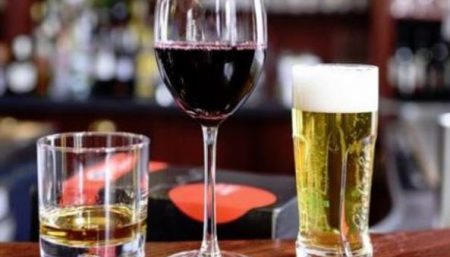Dr. Elisabetta Bernardi explains how water can help mitigate the effects of alcohol on the body
If it is true that drinking a glass of wine or a beer has never hurt anyone, and that excessive consumption of alcoholic beverages is certainly harmful to the body, there are some tricks that can help us to better manage the effects. of alcohol when we find ourselves drinking an extra glass. Among these, proper hydration. Water, in fact, can help to cushion some of the most common discomforts related to the intake of alcoholic beverages such as, for example, headaches: alcohol does not hydrate the tissues which therefore shrink causing internal pressure and - consequently - headache: proper hydration, on the contrary, keeps them hydrated, avoiding shrinkage.
As explained by Dr. Elisabetta Bernardi, Biologist specialist in Food Science and member of the Sanpellegrino Observatory: "Alcohol removes water and important nutrients from the body and can cause the symptoms of dehydration: while containing water, alcoholic beverages cause a deep layer of dehydration in the tissues of the whole organism. This is because alcohol has a diuretic effect on the body, which means that it makes us urinate more frequently, thus causing our body to lose excessive fluids. Just think that 10 grams of alcohol produces about 100 ml of urine, and that a standard drink - 330 ml of beer, 150 ml of wine, 40 ml of liqueur - contains about 14 grams of alcohol ".
There are many widespread beliefs about alcohol, which often lead people to not pay proper attention when they drink it. Doctor Bernardi provides some practical advice to dispel false myths about these drinks:
- Diluted in water, alcohol is less toxic: Mixing alcohol with water can change its taste and make it easier to swallow, but it does not change the amount of alcohol you drink and therefore its harmfulness.
- Alcohol does not make you fat: alcohol provides 7 calories per gram. There are about 100 calories in a glass of wine. In addition, these are calories that promote the accumulation of saturated fat.
- Men tolerate alcohol better than women: for the same amount of alcohol, its level in the blood varies from individual to individual, regardless of gender. Several factors are involved including addiction, liver elimination rate, weight, medication intake, food absorption.
- Alcohol warms us up: the sensation of heat is due to the dilation of the subcutaneous vessels. The body temperature, in fact, drops by half a degree for every 50 g of alcohol absorbed. The sensation of heat can therefore mask a drop in temperature and lead to underestimating the external degrees causing possible problems in cold weather.
- Eating after consuming alcohol reduces its effects: if we consume alcohol without having eaten - or immediately after - our stomach is empty and the alcohol passes directly to the small intestine, then to the blood and brain. For this reason it is strongly advisable to eat at the same time as drinking alcoholic beverages.
